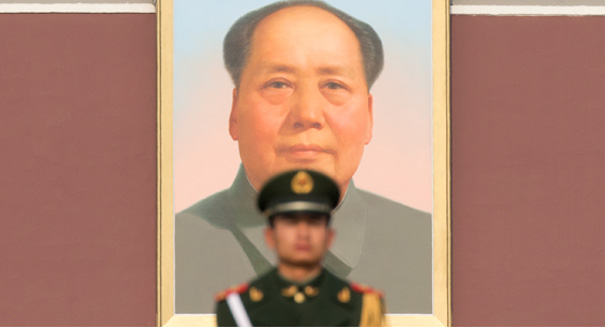Registration
You will receive an email confirming your registration.
IMGXYZ4148IMGZYXThe heated U.S. presidential election, coinciding with China’s once-a-decade political transition, has led to increased scrutiny of U.S.-China bilateral relations. Significant questions remain on how bilateral trade and diplomatic relations between the two nations may change. Carnegie’s Michael Swaine explained the differences and similarities between the platforms of President Obama and Governor Mitt Romney, and the potential impact those platforms might have on U.S. relations with China. Carnegie-Tsinghua’s Paul Haenle moderated.
Impact of China’s Leadership Change on the Bilateral Relationship
- A Change in Focus: Swaine argued that Xi Jinping’s primary focus is likely to be on domestic, rather than international, issues. He explained that the new leadership will face domestic pressure about the economy and social welfare. Although it has been suggested that domestic unrest could lead China to act aggressively abroad in order to capitalize on nationalist sentiment and divert attention from internal problems, Swaine reminded the audience that China has, in fact, sought a peaceful external environment to facilitate its own stable development since the Reform Era.
- Possible Hard Line Policy: While Swaine does not foresee any major changes to China’s foreign policy, he explained that the government has received criticism for being too accommodating with Western countries. This may result in pressure on the new Chinese leadership under Xi Jinping to take a harder stance in foreign policy.
- Foreign Policy Direction Hard to Determine: Xi’s primary concern, explained Swaine, is to establish his legitimacy within the Chinese government. It is not clear whether the PRC leadership will pursue any major changes in critical policy areas such as the global financial crisis, environmental policy, nuclear proliferation, or Middle East policy.
Romney’s Stance on China Is Strong
The election of Romney as U.S. president would have a larger impact on Washington’s relations with Beijing than the reelection of Obama, stated Swaine. While both candidates were critical of China in their platforms, Romney’s promise to label China as a currency manipulator would pose the greatest potential challenge in the coming year.
- Following Through on Campaign Promises: Given Romney’s strong statements promising to declare China a currency manipulator on “day one” of his presidency, Swaine stated that if Romney were to be elected, U.S-China relations may be in for troubled times.
- Declaring China as Currency Manipulator Is Inconsequential: Despite Romney’s talk, Swaine argued that the consequences of declaring China a currency manipulator are unlikely to be economically significant. He noted that the realities of how much both countries’ economies are intertwined would lead the U.S. Department of Treasury to urge Romney to pursue practical cooperation with Beijing. A deal, Swaine explained, would need to be made with Chinese economic officials, but the main question is at what point such a deal would be made.
Ongoing Disputes Between United States and China
2011 and 2012 have been riddled with disputes between the United States and China, primarily focused on territorial disputes at China’s borders. Swaine explained that the decision against Huawei investment in the United States on the grounds of national security concerns will leave the Chinese with little choice but to retaliate.
- Issues Over Investment in Huawei Dispute: The recent congressional decision to prevent China from investing in the U.S. telecommunications sector highlighted tensions between China and the United States. Haenle added that blowback from this decision could affect U.S. multinational companies in China, such as Cisco. This may be an issue that the new leadership under Xi will deal with after the transition.
- Smaller-Scale Investments Tell a Different Story: Swaine reminded the audience that the Huawei decision has not impacted smaller-scale Chinese investment in the United States. On the contrary, Chinese investment in the United States on this smaller scale is taking off. Swaine explained that this investment, rather than the high-profile cases such as Huawei, will create pressure for a U.S.-China policy that fosters an investment-friendly environment for both countries.
- Tensions Remain Over U.S. Military Presence in Asia: Swaine explained that since World War II, the United States has been the predominant power in the Asia-Pacific. Washington thus regards itself as critical to maintaining the stability and prosperity of Asia and believes that the only way to do so is to retain its military, political, and economic presence there. While the position of the United States in Asia is unique, changing economic dynamics have decreased U.S. leverage in the region and increased pressure on the United States to reduce its presence in Asia from countries whose influence is growing. Swaine noted that issues such as Taiwan and the South China Sea ultimately remain questions of sovereignty and territorial integrity for China.
